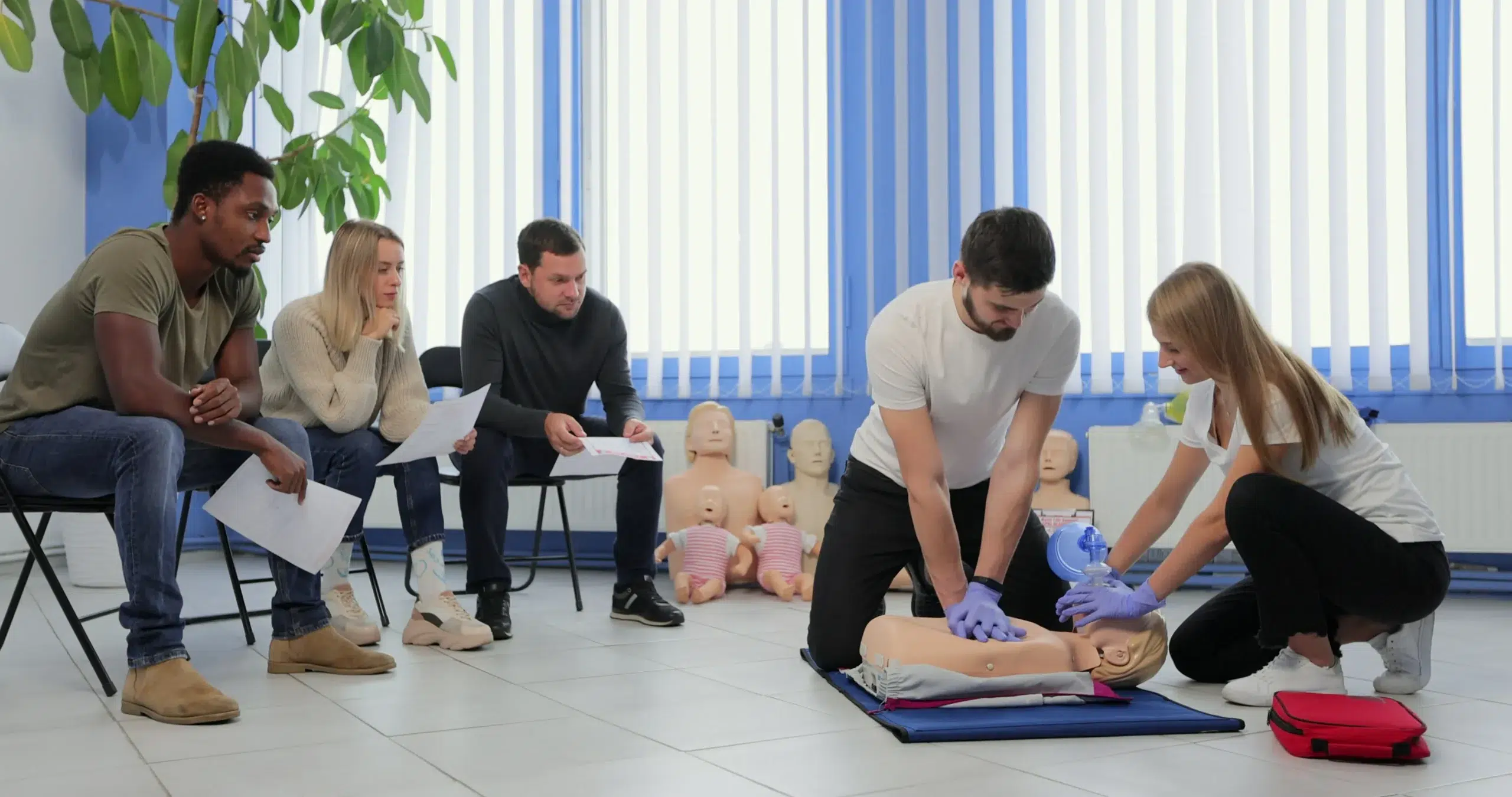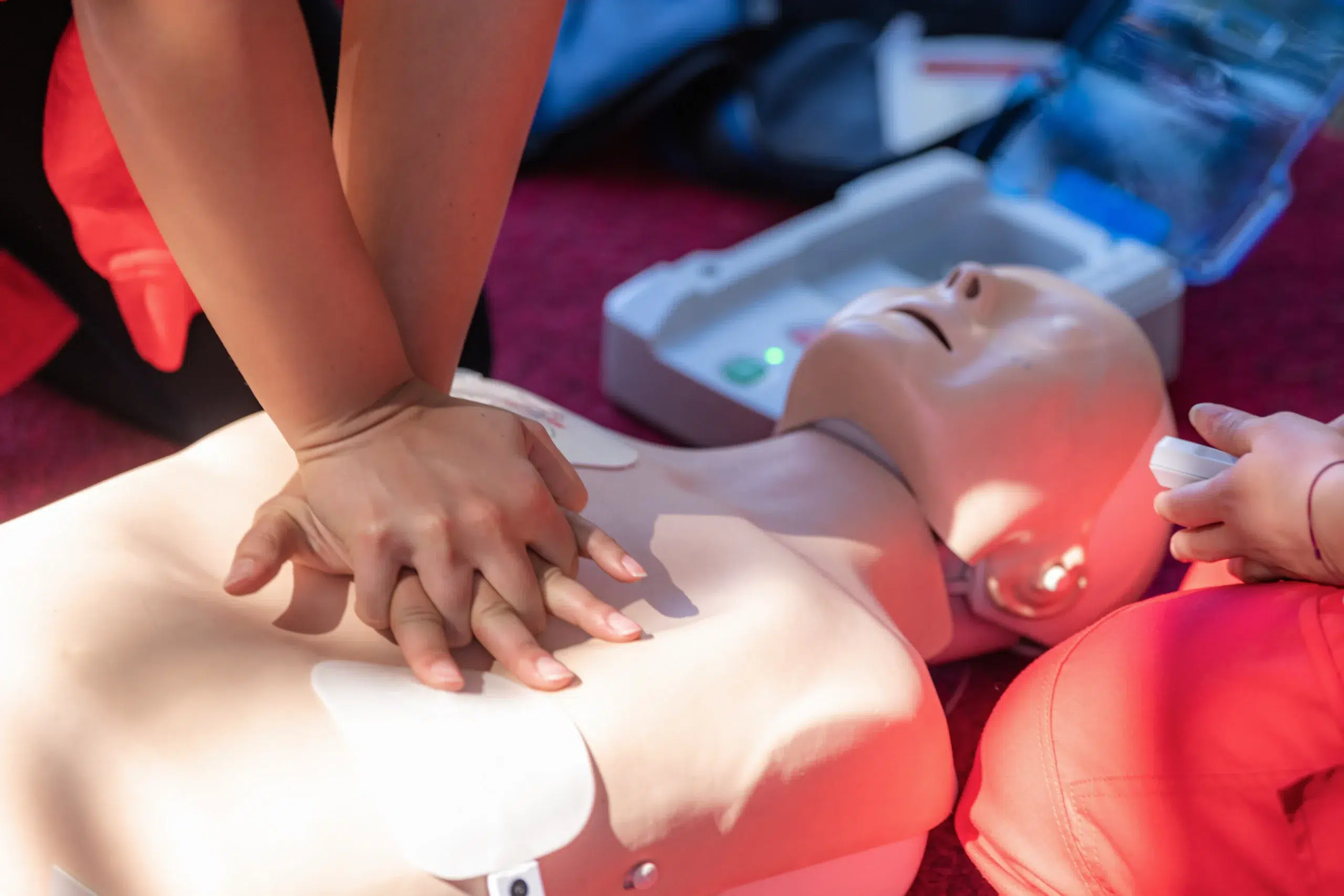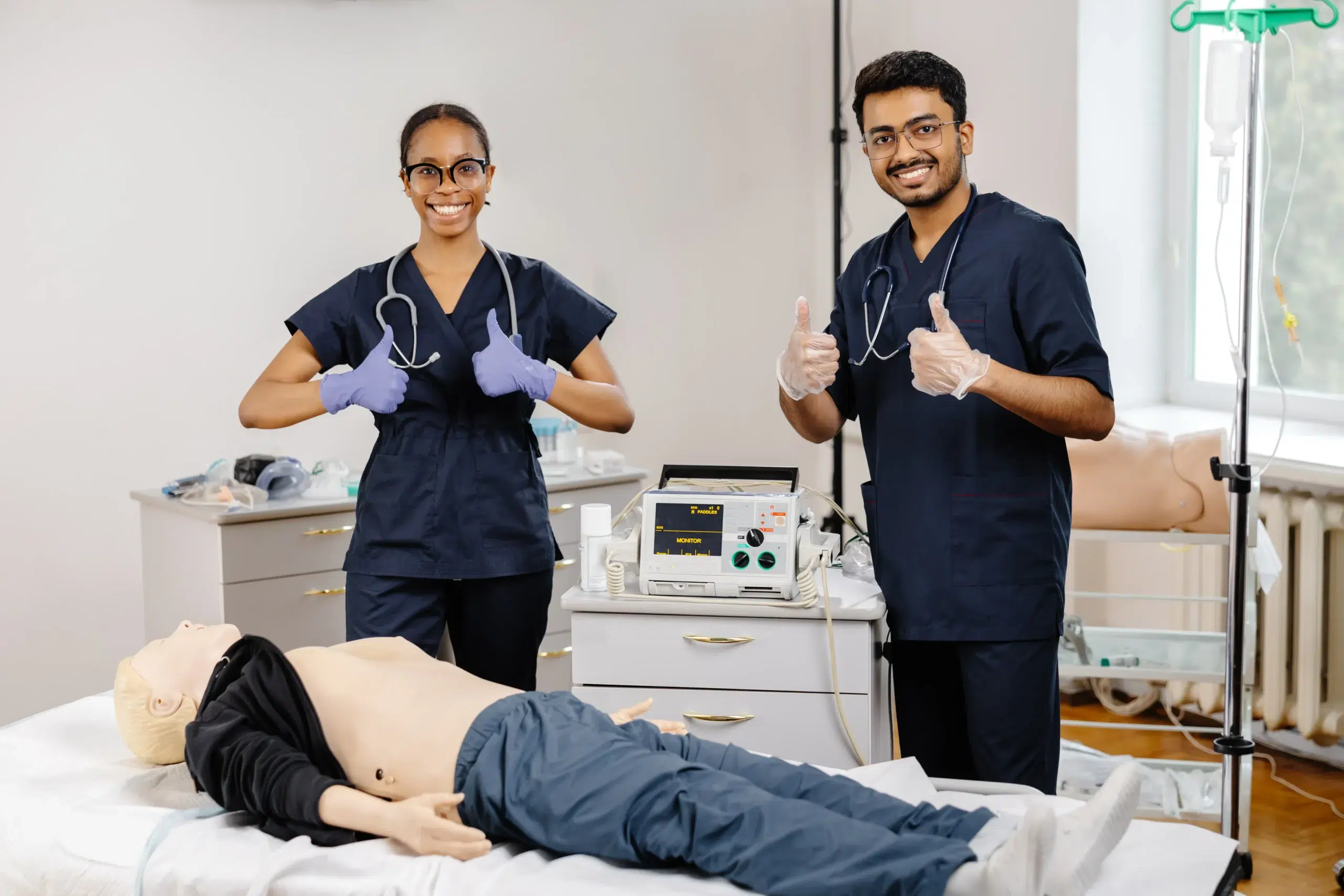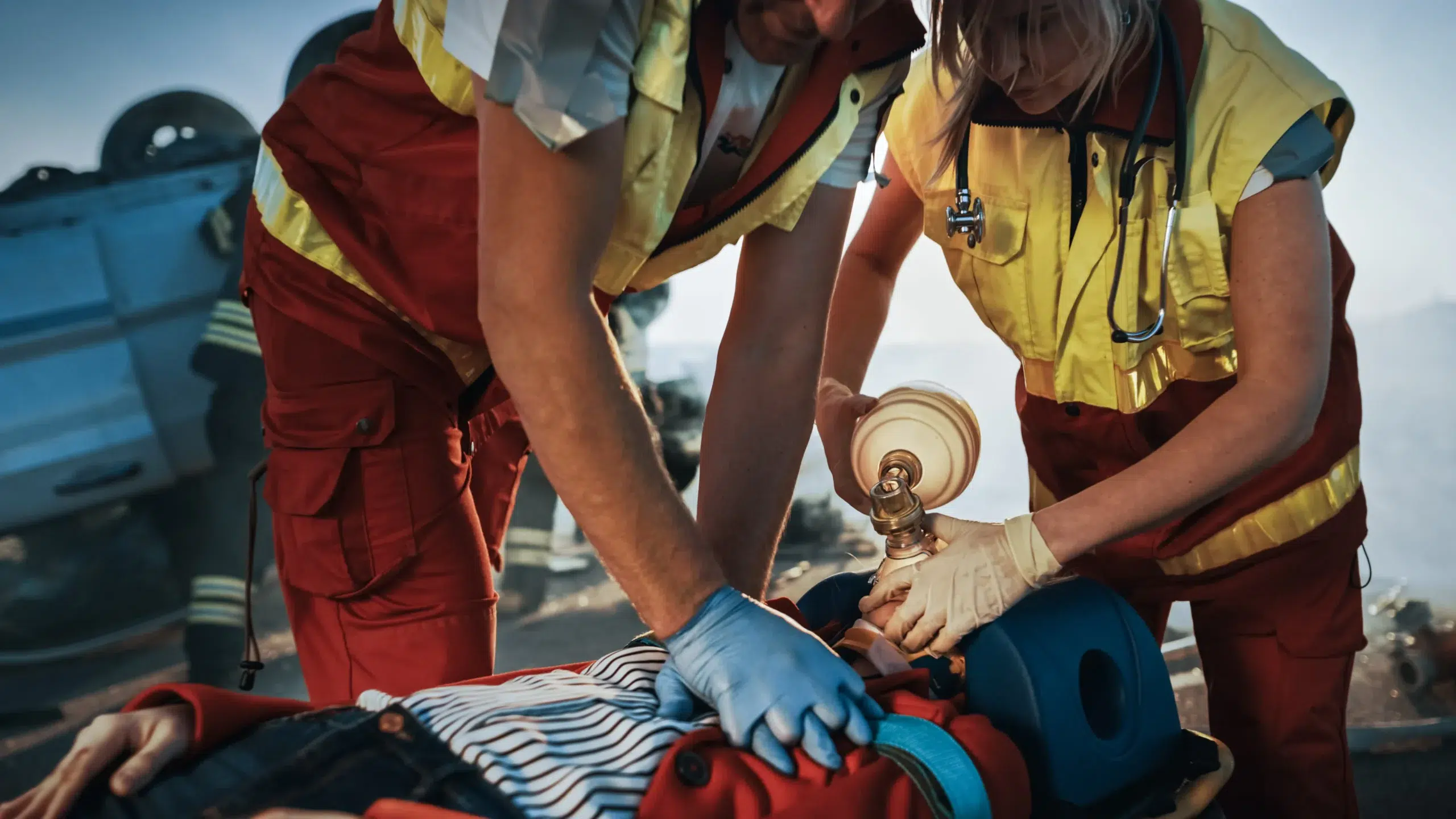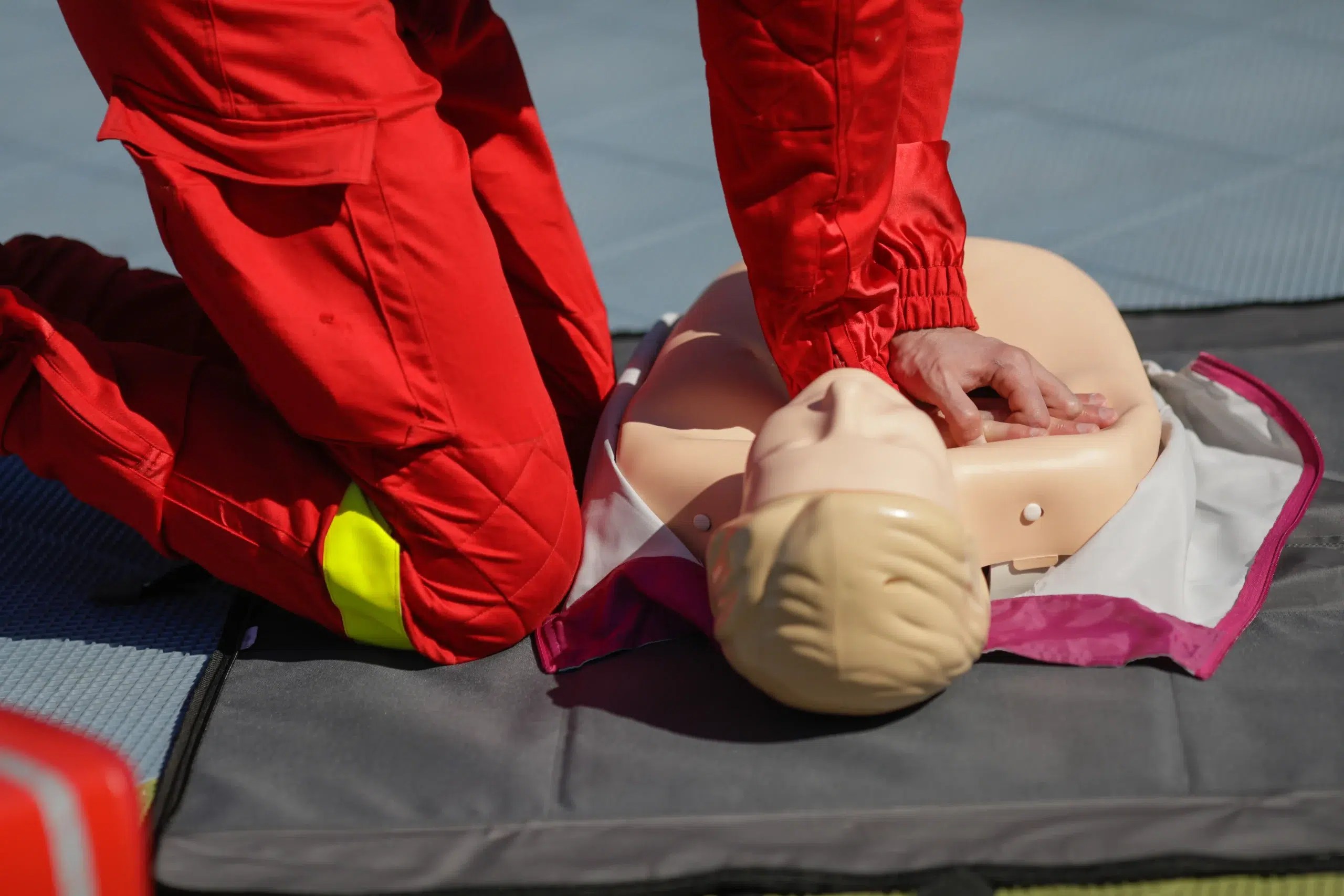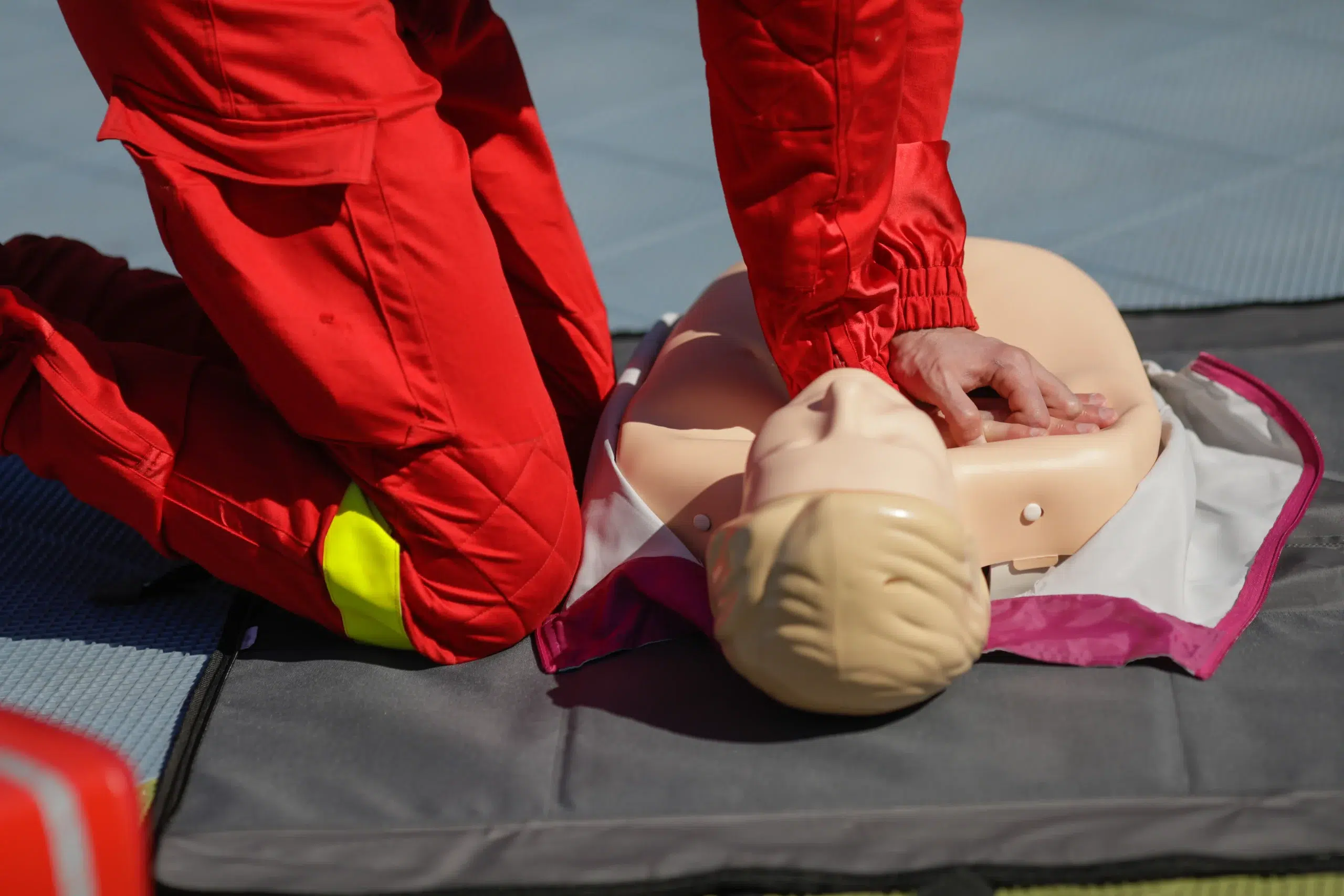Juggling work, family, and other commitments can make it tough to find time for essential training like CPR. But what if you could learn these life-saving skills from the comfort of your own home, at your own pace? If you live in the San Jose area, online CPR classes in San Jose offer a flexible and convenient way to gain this vital knowledge. This guide breaks down everything you need to know about online CPR training in San Jose, from the benefits and available certifications to finding reputable providers and understanding the importance of hands-on practice. We’ll also discuss course formats, costs, and the CPR renewal process, so you can feel confident in choosing the right online CPR class for you.
Key Takeaways
- Combine online learning with hands-on practice: Pair the flexibility of online CPR courses with the essential hands-on skills sessions to gain confidence and proficiency in life-saving techniques.
- Find a CPR course that fits your budget: Explore various CPR and First Aid training options, considering factors like certification type, course length, and available discounts.
- Stay current with the latest CPR guidelines: Renew your certification regularly to maintain your skills and ensure you’re prepared to respond effectively in emergencies.
What are Online CPR Classes in San Jose?
What are Online CPR Classes?
Online CPR classes cover the same fundamental life-saving techniques as traditional in-person classes, but from the convenience of your computer or mobile device. They typically involve video instruction, interactive exercises, and knowledge checks to help you learn the core principles of CPR, such as chest compressions, rescue breaths, and recognizing the signs of a cardiac arrest. While online CPR classes offer a flexible way to learn the basics, combining them with an in-person skills session is essential for mastering the techniques and building the confidence to act effectively in real-life emergencies. This blended approach ensures you gain both the knowledge and the practical skills to perform CPR effectively.
Benefits of Online CPR Training
One of the biggest advantages of online CPR training is its flexibility. It’s a great option for people with busy schedules or those who prefer to learn at their own pace. Online courses allow you to study whenever and wherever it’s convenient for you. This accessibility makes it easier for more people to gain these vital life-saving skills. Plus, online training is often more affordable than in-person classes. To learn more about the advantages of online CPR training and address common misconceptions, check out this helpful article. This resource also highlights the convenience and cost-effectiveness of online CPR training.
Available Online CPR Certifications
Several CPR certifications are available online in San Jose, catering to different needs and skill levels. Common certifications include Basic Life Support (BLS), Advanced Cardiovascular Life Support (ACLS), and Pediatric Advanced Life Support (PALS). Basic CPR training equips individuals with the essential skills to respond to cardiac emergencies, while BLS certification is typically required for healthcare providers and covers more advanced techniques. ACLS and PALS certifications delve into specialized life support protocols for adults, children, and infants. This comprehensive guide offers more information about CPR certification in San Jose. You can also learn more about the different levels of CPR training available.
Top Online CPR Class Providers in San Jose
Finding the right CPR certification course can feel overwhelming with so many options. To simplify your search, we’ve compiled a list of reputable online CPR class providers in San Jose. Remember to verify that the provider and certification meet your specific requirements.
Safety Training Seminars
Safety Training Seminars offers a comprehensive selection of American Heart Association (AHA) certified courses, including CPR, BLS, ACLS, PALS, and First Aid. They also provide EMSA-approved training. Their flexible online classes let you learn at your own pace. With a focus on high-quality training at competitive prices, Safety Training Seminars is a popular choice. Learn more about their low price guarantee.
American Red Cross
The American Red Cross is a well-known provider of CPR and First Aid training, offering classes in San Jose with blended learning options. These courses combine online coursework with in-person skills sessions taught by Red Cross experts. The training covers job-relevant skills that meet OSHA compliance. The Red Cross is a trusted name in emergency preparedness, making their certification widely recognized.
Emergency and Health Training Center
The Emergency and Health Training Center provides AHA-certified CPR, BLS, ACLS, PALS, and First Aid classes. Their convenient online training accommodates various learning styles and schedules. They focus on equipping you with the skills and knowledge to respond effectively in emergencies.
HeartShare Training Services
HeartShare Training Services prioritizes high-quality CPR and First Aid training. Their online courses emphasize practical, hands-on skills to prepare you for real-life emergencies. Known for their thorough instruction, they aim to give you the confidence to act quickly and effectively in critical situations. Find reviews and more information about their services online.
First Support CPR and First Aid Training
First Support CPR and First Aid Training offers various CPR and First Aid courses for diverse audiences, from healthcare professionals to the general public. Their engaging and informative online classes make learning accessible and convenient. They aim to provide practical training that empowers you to respond confidently in emergencies.
Course Formats and Content
Online vs. Blended Learning
CPR and First Aid training in San Jose are readily available, both in person and through blended learning. Blended learning, often called “hybrid learning,” combines online coursework with in-person skills sessions. This format offers flexibility for learning the basics but maintains the essential hands-on component. Think of it this way: you can learn the how and why of CPR online, then develop the actual muscle memory and confidence you’ll need during a real-life emergency at an in-person skills session. Many providers, including Safety Training Seminars, offer this blended Simulation Learning approach.
Covered Skills and Techniques
Regardless of the format you choose, CPR courses cover essential life-saving skills. You’ll learn CPR techniques for adults, children, and infants, how to use an AED (Automated External Defibrillator), and basic first-aid skills for common injuries like cuts and burns. The curriculum also covers recognizing the signs of a heart attack or stroke and how to respond in various emergency situations. These core skills empower you to provide immediate assistance while waiting for professional medical help to arrive.
Specialized Courses
Beyond basic CPR and First Aid, San Jose offers specialized courses like Basic Life Support (BLS), Advanced Cardiovascular Life Support (ACLS), and Pediatric Advanced Life Support (PALS). BLS certification is geared towards healthcare providers—doctors, nurses, paramedics, and other professionals in medical settings—and covers more advanced techniques than basic CPR training. ACLS focuses on advanced life support for adults, while PALS addresses the specific needs of infants and children. Choosing the right course depends on your individual needs and professional requirements. If you’re unsure which certification is right for you, reach out to a training provider like Safety Training Seminars; they can help you determine the best fit.
Cost of Online CPR Classes
CPR certification is an investment in lifesaving skills, and thankfully, it doesn’t have to break the bank. Understanding the factors that influence pricing can help you find a course that fits your budget.
Certification Price Ranges
Basic CPR classes in San Jose typically range from $65 to $90. This usually covers the training, a two-year certification card, and sometimes even a CPR mask or gloves. More advanced certifications like ACLS (Advanced Cardiovascular Life Support) or PALS (Pediatric Advanced Life Support) naturally come at a higher price point due to the specialized nature of the training. You can find a range of CPR and First-Aid courses offered in San Jose to suit different needs and budgets.
Factors Affecting Price
Several factors contribute to the final cost of your CPR class. The type of certification you pursue plays a significant role. For instance, a BLS CPR Provider renewal course in San Jose averages around $70 for a 3.5-hour class. The course length itself is another factor; longer courses with more comprehensive material often have higher fees. The training provider also matters. Some organizations, like Safety Training Seminars, a woman-owned AHA Training Center, focus on providing high-quality training at competitive prices for various American Heart Association certification courses.
Discounts and Promotions
It’s always a good idea to inquire about potential discounts. Many providers offer reduced rates for group training sessions. This can be a great option if you’re signing up with colleagues or friends. Some training centers also offer discounts for students, seniors, or members of specific organizations. Don’t hesitate to ask—you might be surprised at the savings you can find!
CPR Certification Renewal
CPR skills are essential for responding to emergencies and providing immediate care until professional medical help arrives. But like any skill, CPR techniques benefit from regular refreshing. That’s why CPR certifications expire—so you can stay up-to-date on the latest life-saving practices. This section covers everything you need to know about renewing your CPR certification in San Jose.
Certification Validity
How long is your CPR certification valid? Most CPR certifications, such as BLS, are valid for two years. This timeframe helps ensure certified individuals maintain proficiency in performing CPR. Keeping your certification current allows you to provide effective assistance during emergencies.
Renew Your Certification
Renewing your CPR certification is a straightforward process. Many providers, including Safety Training Seminars, offer streamlined renewal courses. These courses often cover updates to guidelines and techniques, ensuring you’re equipped with the most current knowledge. Check with your original certifying organization, whether it’s the American Heart Association (AHA) or the American Red Cross, for specific renewal options. You can often find convenient in-person renewal courses in San Jose.
Stay Updated on Guidelines
CPR guidelines and best practices evolve with ongoing medical research and advancements. When you renew your certification, you’ll learn the latest techniques and protocols, ensuring you’re prepared to deliver the most effective care. Choose a CPR renewal course from a recognized organization like the AHA or the American Red Cross to stay informed about any changes. Staying current with established guidelines is critical for maintaining your CPR skills and providing confident assistance in emergencies.
Choose the Right Online CPR Class
So, you’re ready to take an online CPR class? Great! Choosing the right course and provider is key to a good experience and valid certification. This section breaks down what to look for when selecting your online CPR class.
Selecting a Provider
Finding the right provider is crucial for a positive and effective learning experience. A reputable provider offers high-quality materials, accessible support, and valid certification. Look for providers affiliated with nationally recognized organizations like the American Heart Association (AHA) or the American Red Cross. For instance, Safety Training Seminars offers a range of AHA-certified courses in San Jose. Do some research and compare providers to find the best fit for your needs and budget. Also, check for a low price guarantee.
Ensure Certification Validity
Before you sign up, confirm the certification will be valid for your workplace or organization. Online courses offer flexibility for learning the basics, but CPR is a hands-on skill. In-person skills sessions are essential for developing the muscle memory and confidence needed in real-life emergencies. A blended learning approach—combining online coursework with in-person practice—is often the most effective way to master these lifesaving skills. Also, check the certification’s expiration date. Most certifications are valid for two years, after which you’ll need a refresher course.
Reasons for CPR Training
Learning CPR is empowering. It equips you with the skills to respond effectively during cardiac arrest, potentially doubling a person’s chance of survival. Whether you’re a healthcare professional, a childcare provider, or simply someone who wants to be prepared, CPR training provides invaluable skills that can make a real difference. While online courses offer a convenient way to learn the fundamentals, combining online learning with hands-on practice ensures you develop the confidence and muscle memory to perform CPR effectively under pressure.
Common CPR Training Questions
It’s smart to have a few questions before signing up for CPR training. Here are answers to some common questions we hear from our students in San Jose:
Is Online Training Legitimate?
The validity of online CPR certification depends on the certifying organization and whether you need certification or recertification. A fully online CPR certification won’t prepare you for real-life emergencies and may not be accepted by your employer. While online courses offer a convenient way to learn the basics, organizations like the American Heart Association (AHA) and the American Red Cross (ARC) require an in-person skills check and testing session for certification. If you’re looking for convenient recertification, consider our unique RQI program. Look for programs that offer hands-on training with certified instructors. For those seeking initial certification, our CPR and First Aid courses provide the necessary in-person training.
Hands-On Practice Online
Fully online CPR training often misses a crucial element: hands-on practice. CPR is a physical skill. You’ll need to develop muscle memory and confidence to perform compressions and rescue breaths effectively during a real emergency. This requires practice on manikins and feedback from a qualified instructor. While some online courses may offer videos and simulations, they can’t replace the experience of in-person training.
Balancing Convenience and Skills
Online learning offers undeniable convenience, especially for busy professionals and caregivers. However, it’s important to find a balance between convenience and developing the necessary skills. Consider blended learning programs that combine online coursework with in-person skills sessions. This approach allows you to learn the cognitive material at your own pace while still getting the hands-on practice you need to feel confident in your abilities. Ultimately, the goal of CPR training is to equip you with the skills to potentially save a life, so prioritize programs—like those offered at Safety Training Seminars—that offer adequate hands-on training. We also offer a low price guarantee, so you can be confident you’re getting the best value for your training.
Related Articles
- San Jose CPR Classes: Find Certification Near You – San Jose CPR Classes
- CPR Classes in San Jose: Your Complete Guide – San Jose CPR Classes
- San Jose CPR Certification: Your Complete Guide – San Jose CPR Classes
- History of CPR & San Jose CPR Classes – San Jose CPR Classes
- Pediatric CPR & First Aid Classes in San Jose – San Jose CPR Classes
Frequently Asked Questions
What’s the difference between online CPR training and blended learning?
Online CPR training delivers the course content virtually, allowing you to learn at your own pace. Blended learning combines online instruction with an essential in-person skills session, where you practice techniques on manikins and receive feedback from a certified instructor. This hands-on component is crucial for building the confidence and muscle memory needed to perform CPR effectively in real-life situations.
Which CPR certification is right for me?
The best CPR certification depends on your individual needs. Basic CPR and First Aid training are suitable for most people, including teachers, coaches, and parents. Healthcare providers typically require BLS certification, which covers more advanced techniques. ACLS and PALS certifications are specialized life support training for adults, children, and infants, respectively. If you’re unsure which certification you need, contact a training provider like Safety Training Seminars for guidance.
How much do CPR classes cost in San Jose?
The cost of CPR classes varies depending on the type of certification, course length, and training provider. Basic CPR classes generally range from $65 to $90. More advanced certifications like BLS, ACLS, and PALS typically cost more. Many providers offer discounts for groups, students, or members of certain organizations, so it’s always worth asking. Safety Training Seminars offers a low price guarantee, ensuring you receive high-quality training at a competitive rate.
How often do I need to renew my CPR certification?
Most CPR certifications, including BLS, are valid for two years. Renewing your certification ensures you stay up-to-date with the latest CPR guidelines and techniques, which can change over time. Renewal courses are often shorter than initial certification courses and focus on refreshing your knowledge and skills.
Why is hands-on practice so important for CPR training?
CPR is a physical skill that requires more than just theoretical knowledge. Hands-on practice allows you to develop the muscle memory and coordination needed to perform chest compressions and rescue breaths effectively under pressure. While online learning is convenient for understanding the concepts, in-person training with a qualified instructor is essential for mastering the practical application of CPR techniques. This hands-on experience builds the confidence you need to act quickly and effectively in a real emergency.



